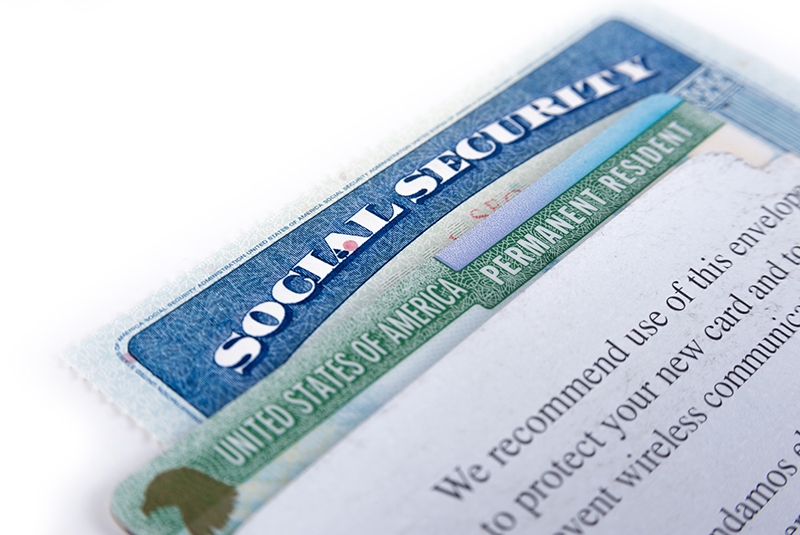
While most observers are focused on the border crisis and President Biden’s inability — or unwillingness — to control it, other elements of his administration are weakening the legal immigration system. In two separate but related actions, the Biden administration is lowering the standards to obtain lawful permanent resident (green card) status and burdening American taxpayers in the process.
First, the Biden Department of Justice abandoned its legal defense of the final rule regarding Inadmissibility on Public Charge Grounds, developed under the Trump administration. This rule should not have been considered controversial because the public charge ground of inadmissibility has been a part of U.S. immigration law for more than 100 years. Under the law, an alien who is likely at any time to become a public charge is generally inadmissible and ineligible to become a lawful permanent resident.
While Congress provided certain mandatory factors to be considered in the inadmissibility analysis, it did not concretely define “public charge”. Accordingly, in 1999, the Immigration and Naturalization Service defined a public charge as an alien primarily dependent on cash assistance, but exempted non-cash welfare like housing assistance and food assistance. The Trump administration redefined public charge through extensive rulemaking in full compliance of the Administrative Procedure Act (APA) to mean an alien who is "more likely than not" to receive certain taxpayer-funded public benefits for more than 12 months within a 36-month period, including non-cash welfare.
Even before the final rule was set to go into effect on October 15, 2019, judges in several jurisdictions blocked its implementation. Eventually, the U.S. Supreme Court stepped in and tossed the last remaining injunction on February 21, 2020, finally allowing the Department of Homeland Security (DHS) to apply the rule four months after it should have gone into effect. Undeterred by the Supreme Court, a judge in the Northern District of Illinois issued an order on November 2, 2020, vacating the rule nationwide. The next day, the Seventh Circuit Court of Appeals granted a stay, which allowed for the continued application of the public charge rule pending appeal. Then on March 9, 2021, the Biden DOJ told the Supreme Court it would stop defending the Trump-era rule, allowing the district court’s vacatur to prevail. In a subsequent document published in the Federal Register, DHS removed the 2019 public charge rule and purported to revert to the 1999 interim guidance.
Putting aside the dubious legal ground that the Biden administration can kill a final rule without going through separate notice and comment rulemaking as required by the APA, this move will ensure sustained welfare use by non-citizen households. Based on 2014 Census Bureau data, my colleague Steven Camarota found that 63 percent of households headed by a non-citizen used at least one welfare program, compared to just 35 percent of native-headed households. Throughout the Trump administration’s development of the public charge rule, the media continuously misclassified the rule as a "wealth test". This is simply false. The public charge analysis has nothing to do with an alien's wealth (i.e., money) but instead whether or not the alien can live within his or her means (i.e., not rely on welfare).
In a companion action, on March 19, 2021 DHS announced it is withdrawing the proposed rule regarding the affidavit of support, issued by the Trump administration but not finalized before President Biden took office. Under the law, family-based intending immigrants and certain employment-based intending immigrants must have a sponsor sign an affidavit of support as a condition of their eligibility for a green card. The affidavit of support is a binding contract between the sponsor (a U.S. citizen, U.S. national, or LPR) and the U.S. government whereby the sponsor, among other things, is responsible for reimbursing the Treasury (i.e., American taxpayers) for any taxpayer-funded benefits the intending immigrant accesses while the affidavit of support is in effect.
If the Trump rule had been finalized, sponsors would have been required to provide three years of tax returns, credit reports, and other information that shows they actually could support the intending immigrant and/or reimburse the government for any benefits used.
This is common sense; intending immigrants and their sponsors should be responsible for their livelihood, not the American taxpayer. By withdrawing the proposed rule, the Biden administration is sending a clear signal that it will not enforce the affidavit of support, effectively nullifying this provision of immigration law. As a result, more immigrants will access more welfare benefits, increasing the overall burden on American taxpayers.
By discarding the Trump-era public charge and affidavit of support rules, the Biden administration is rewriting our nation’s history that self-sufficiency is an underlying premise of the U.S. immigration system. While the U.S. immigration system is intended to be structured in a manner that protects American taxpayers, the Biden policies flip the script and offer taxpayer-funded benefits to immigrants.
